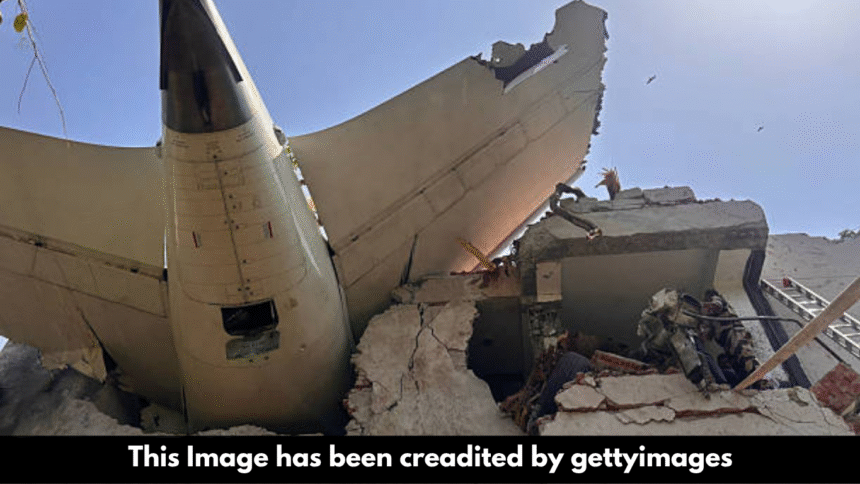Introduction
Confusion and indignation were aroused when Google’s AI-powered search results mistakenly linked Airbus to the Boeing 737 tragedy that occurred on Air India Express. The incident happened in August 2020 when a Boeing 737-800 in Kozhikode, India, overshot the runway. But Google’s AI-generated answers misidentified Airbus as the manufacturer, raising concerns about responsibility and the accuracy of AI-generated data.
This raises a critical question: Why hasn’t Airbus sued Google for defamation or misinformation? This article explores the implications of AI errors, the legal landscape, and why Airbus may have chosen not to pursue legal action. Read More
The Air India Express Crash: What Actually Happened?
Key Details of the Incident
- Date: August 7, 2020
- Flight: Air India Express Flight IX-1344
- Aircraft Type: Boeing 737-800 (Not an Airbus)
- Location: Kozhikode International Airport, India
- Casualties: 21 fatalities, over 100 injured
During periods of intense rain, the Boeing 737-800 broke into two parts after skidding off the tabletop runway. Subsequent investigations revealed that weather and pilot error were the main culprits.
How Did Google’s AI Get It Wrong?
Despite clear records showing the aircraft was a Boeing, Google’s AI Overview (formerly Search Generative Experience) incorrectly stated:
“The Air India Express crash in 2020 involved an Airbus A320.”
This misinformation spread rapidly, with screenshots circulating on social media, damaging Airbus’ reputation despite having no involvement.

Why Hasn’t Airbus Sued Google?
1. AI Errors Are Still a Legal Gray Area
- No AI Defamation precedent: “An Airbus A320 was involved in the 2020 Air India Express crash.”
- Google’s Disclaimer: Google often includes disclaimers that AI results may be inaccurate, potentially shielding them from lawsuits.
2. Airbus May Not See Legal Action as Worthwhile
- Quick Correction: Google likely fixed the error after backlash, reducing long-term damage.
- Public Relations Risk: A lawsuit could draw more attention to the mistake, worsening reputational harm.
3. Boeing’s Dominance in the Incident
- Since the crash was widely reported as a Boeing 737 incident, Airbus may argue that the AI error had minimal real-world impact.
4. Potential for Future Collaboration
- Airbus and Google have partnered on AI and cloud computing projects. A lawsuit could strain business relations.
Comparison: Boeing vs. Airbus in Aviation Incidents
| Aspect | Boeing | Airbus |
|---|---|---|
| Notable Crashes | 737 MAX (Lion Air, Ethiopian) | A330 (Air France 447) |
| AI Misattribution? | No | Yes (Google’s AI error) |
| Legal Actions Taken | Multiple lawsuits (737 MAX) | None over AI misinformation |

The Bigger Problem: AI Hallucinations in Search
There is a history of Google’s AI “hallucinating” incorrect information:
- Misidentifying Celebrities
- Falsely Attributing Quotes
- Providing Dangerous Advice (e.g., wrong medical info)
This incident highlights the risks of over-reliance on AI-generated answers without human verification.
Could Airbus Sue in the Future?
If AI errors continue to misrepresent companies, legal action may become more common. Potential grounds for a lawsuit could include:
- Defamation (if false info harms reputation)
- Negligence (if Google fails to correct errors)
- Business Disruption (if false info affects stock prices)
However, as of now, Airbus has remained silent, possibly due to the factors mentioned earlier.
Conclusion: Should Tech Giants Be Held Accountable?
The Airbus-Google AI blunder underscores the need for:
✅ Better AI accuracy checks
✅ Clearer legal frameworks for AI errors
✅ Human oversight in critical information
While Airbus has not sued Google yet, repeated misinformation could force companies to take legal action. For now, the aviation giant seems to be prioritizing damage control over litigation.

FAQs
Q: Did Airbus have any role in the Air India crash?
A: No, the aircraft was a Boeing 737-800.
Q: Why does Google’s AI make such mistakes?
A: AI pulls data from various sources without always verifying accuracy.
Q: Has Google apologized for the error?
A: No official statement yet, but corrections were likely made internally.
Q: Could this lead to stricter AI regulations?
A: Possibly, as governments are increasingly scrutinizing AI reliability.







